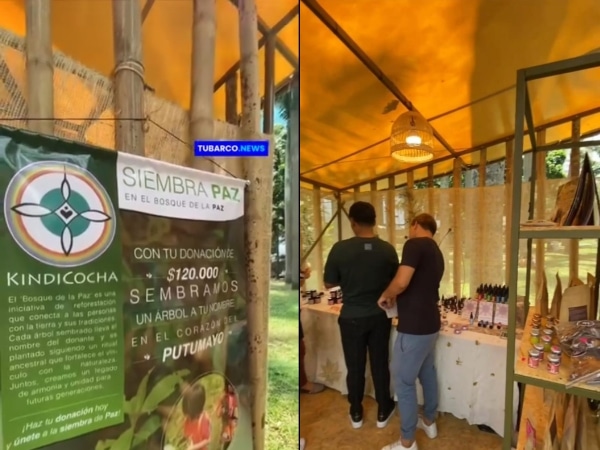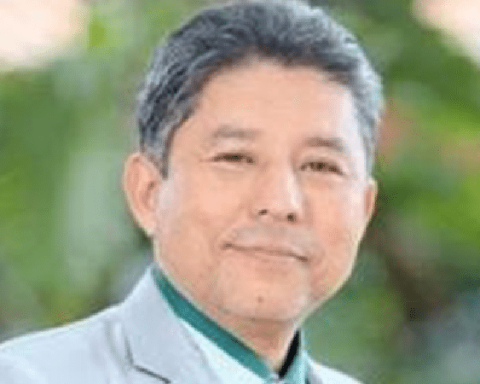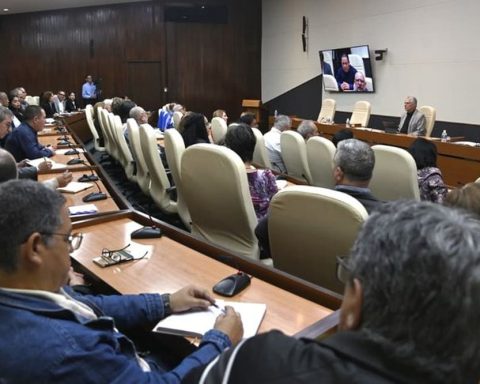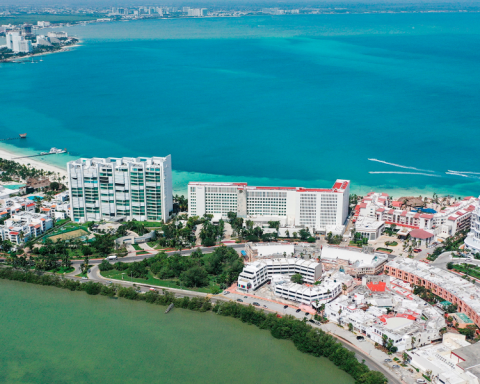An environmental initiative with global impact for conservation and reforestation.
News Cop16.
In the heart of Putumayo, between the Andes and the Amazon, the Kuindicocha Foundation leads one of the most significant reforestation and conservation initiatives in Colombia: the Forest of Peace.
This project is not only dedicated to planting trees in areas affected by logging, livestock farming and mining, but also seeks to restore and protect the biodiversity that makes Putumayo a unique territory in the world.
As nations prepare for COP16, the Kindicocha Foundation provides an example of how a local initiative can have a global impact in the fight against climate change and biodiversity loss.
A green lung for the world
The Peace Forest is much more than a reforestation project. It is a living biodiversity reserve, created and sustained thanks to donations from people and organizations from different countries, committed to the preservation of the Amazon.
To date, more than 3,000 trees have been planted in Putumayo, which contributes not only to the capture of CO2, but also to the balance of the local and global ecosystem.
Read: Children’s music as a voice of change at COP16: Peace with nature
This “green lung” helps maintain climate stability, conserve endemic fauna and flora, and promote a sustainable development model that benefits local and native communities.
The call of the yellow hummingbird
Within the mission of the Forest of Peace, the “The Call of the Yellow Hummingbird” campaign invites individuals from around the world to sponsor a tree.
With a donation, each person or company can support the planting of a tree in the Peace Forest and receive a certificate that includes the exact location of their planting, information on the tree’s growth, and associated environmental indicators.
This commitment also gives each donor the opportunity to visit the forest virtually, through periodic filming that shows the state of the area and the impact of each tree on the ecosystem.
An alliance with the earth
Mario, one of the leaders of the Kindicocha Foundation, explains that this effort is not just an environmental campaign, but an “ancestral ritual” that connects people to the land.
Each tree planted symbolizes a planting of peace and a gesture of harmony with nature. The Foundation also focuses on environmental education and the preservation of ancestral knowledge through its Andean-Amazonian School of Good Living, an intercultural space where people of all ages and backgrounds can learn about permaculture, solidarity economy and comprehensive health.
The Peace Forest project goes beyond planting trees. The Kindicocha Foundation has acquired more than 520 hectares of land to protect it from activities that degrade the ecosystem, such as mining and intensive livestock farming.
Gardens of resistance: the Cali Agroecological Network, from the protest to Cop16
These lands have become civil society reserves, where the Foundation also promotes sustainable community businesses, offering healthy foods, ecological hygiene products and bioenergy medicines.
The Kindicocha Foundation, with the support of the Peace Forest, demonstrates that it is possible to combine conservation, sustainability and economic development, respecting local traditions and generating a positive impact on the environment.
In a global context where climate change and environmental degradation are accelerating, the Foundation’s call is clear: planting a tree is an act of peace and commitment to the future of our planet.
More on environmental issues:


















